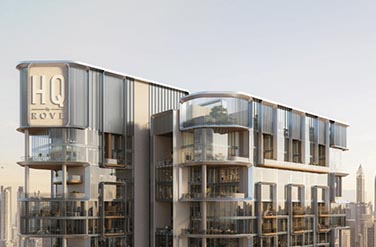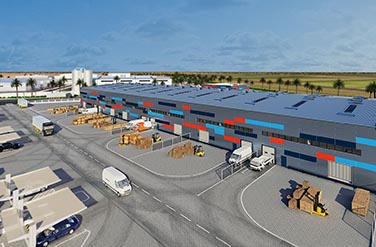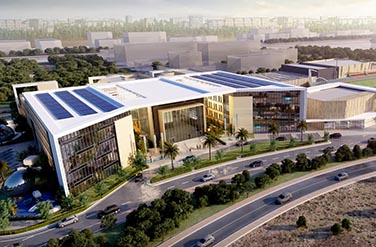The property market in the Middle East, particularly in the United Arab Emirates (UAE) cities of Dubai and Abu Dhabi, is attracting more interest and capital from Hong Kong and mainland China.
Hong Kong-based Gaw Capital spent more than US$150 million on a residential building in Abu Dhabi, the capital, two weeks ago. And last week Black Spade Capital, the family office of casino billionaire Lawrence Ho Yau-lung, invested in IFCX, a Hong Kong-based real estate brokerage focused on real estate in markets including the Middle East.
Meanwhile, Chinese buyer inquiries for UAE properties rose by 28 per cent in the first quarter from a year ago, according to data from property technology firm Juwai IQI.
Foreign investors bought more than US$2 billion of real estate in Abu Dhabi in 2024 – a 125 per cent increase from a year earlier, the data showed. China was among the top sources of capital, along with the US, UK, France, Kazakhstan and Russia, the firm said.
Gaw Capital’s residential investment in Abu Dhabi was for a building at Mamsha Gardens, a low-density project with seven residential buildings on Saadiyat Island.
It acquired the building from Aldar, the largest developer in Abu Dhabi, which reported that 87 per cent of its sales in the first quarter came from international buyers, said Kashif Ansari, Juwai IQI co-founder and group CEO.
Gaw Capital, which was founded in 2005 and managed US$34.4 billion in assets as of the end of 2024, would “increasingly allocate” capital to the Middle East, according to a spokeswoman.
In Dubai, meanwhile, Chinese sources provided about 8 per cent of all foreign investment in property in 2024, Ansari said.
Dubai’s residential rents and sales prices increased by 16 per cent and 18 per cent year on year in 2024, respectively, according to Cushman & Wakefield Core.
Office rents, meanwhile, surged by 22 per cent in 2024 from a year earlier, with further increases of between 10 per cent to 12 per cent forecast for 2025, the property consultancy said.
“The increase in expatriate demand, ongoing government initiatives attracting foreign investments, overall economic diversification efforts in the UAE and the introduction of new residency permits have positively impacted property market sentiment,” said Humbert Pang, managing principal, head of China and co-chair of alternative investments at Gaw Capital.
Recent visits by world leaders to the Middle East underscored the region’s growing importance, said Dennis Tam, Black Spade president and CEO.
US President Donald Trump wrapped up a four-day Gulf tour last week with a stop in Abu Dhabi, after signing a number of multibillion-dollar deals and securing a US$1.4 trillion investment pledge from the UAE.
Hong Kong Chief Executive John Lee Ka-chiu led a 50-person delegation of business leaders and entrepreneurs from the city and mainland China for a four-day visit to Kuwait and Qatar last week.
Lee touted the city’s hope to sign a free-trade agreement with the Gulf Cooperation Council and invited Kuwait to set up an office of its investment authority in Hong Kong.
“World leaders have been visiting the Middle East and that is interesting,” Tam said. “It’s a huge market that you cannot neglect.”
David Abood, head of capital markets and co-CEO at Cushman & Wakefield Core, confirmed that the Middle East had seen “an uptick in inbound investor activity” from Asia, including “mandates from China and Hong Kong-based capital sources”.
“Many of these investors are targeting institutional-grade assets across the logistics and office sectors, either directly or through partnerships,” Abood said. “We are actively advising on several opportunities of interest to Asian investors, including deals valued in the multi-million-dirham range.”
He cited the firm’s “most recent record-breaking office transaction” in the UAE, valued at about 2.5 billion dirhams (US$681 million) as an example of the strength of the UAE market.
Abood said foreign capital was focusing on prime offices and mid-tier to high-end residential buildings, in addition to logistics and industrial properties, in Abu Dhabi and across the UAE.
“These segments are attractive due to their immediate income-generating potential, rising demand and strong regulatory transparency,” Abood said.
In the first three months of the year, the average transaction price for luxury property in Abu Dhabi was US$743,000, while the average for foreign buyers was substantially higher at US$1.12 million, said Ansari of Juwai IQI.
IFCX aims to pool at least US$5 billion of capital from Asian clients for investments in emerging markets, including the Middle East. The group operates Asia Bankers Club, a direct investor sales company; Knightsbridge Partners, an agent for developers; and Easy Pro, a letting and property-management agency.
Ho is the chairman of Melco Resorts & Entertainment, one of the six casino concessionaires in Macau, as well as the son of the late gaming mogul Stanley Ho Hung-sun. He has an estimated net worth of US$1.2 billion, according to Forbes.



